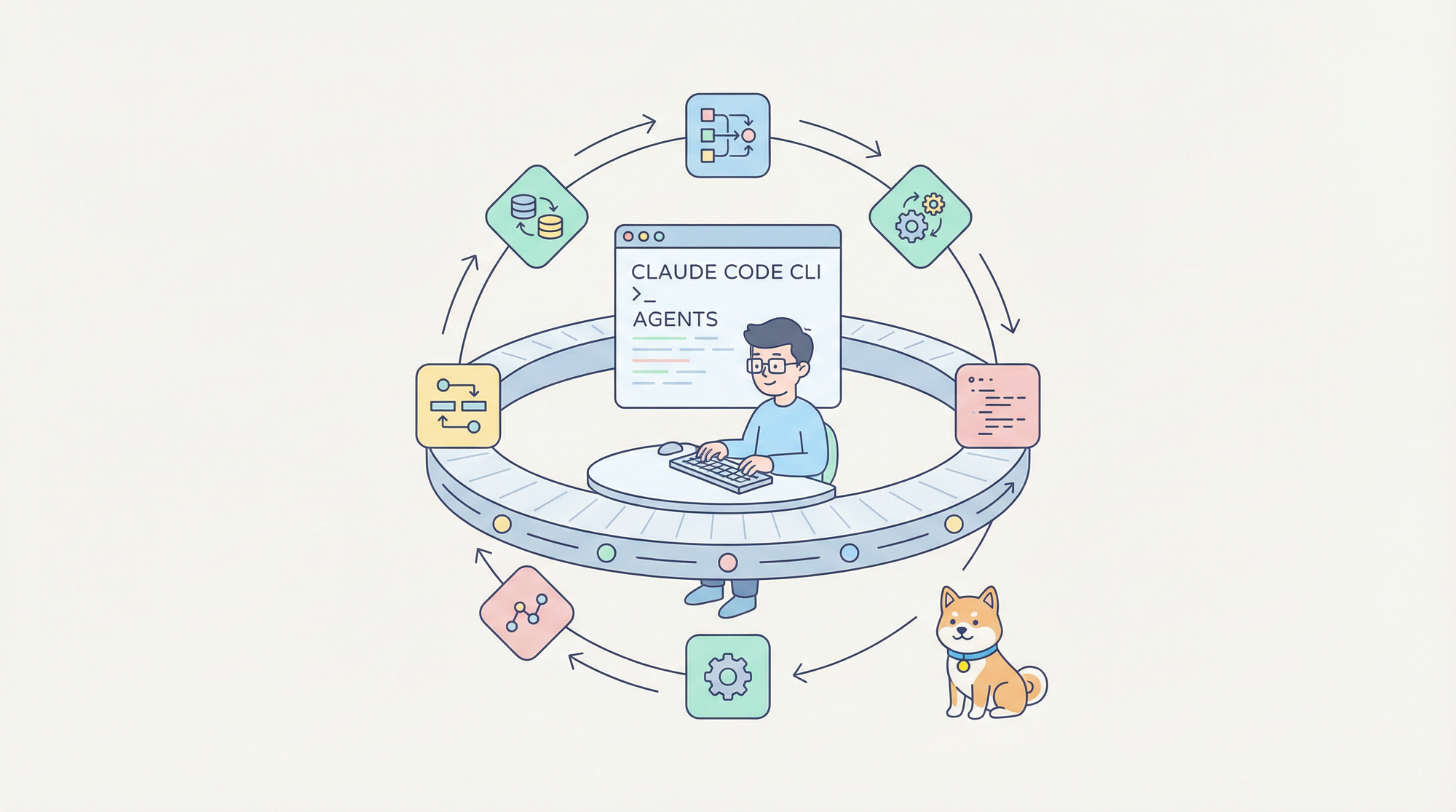In today's fast-paced development environment, proper documentation is crucial for both internal teams and end-users. While MkDocs has been a popular choice for creating documentation sites from Markdown files, there are numerous alternatives that offer unique features, better integrations, or specialized capabilities. This article explores the top 10 MkDocs alternatives you should consider for your next documentation project, with a special focus on API documentation tools.
1. Apidog - The Ultimate API Documentation Solution
Best for: API-first teams, collaborative environments, and comprehensive API lifecycle management
Apidog stands as the premier choice for API documentation, offering a comprehensive platform that combines API design, testing, documentation, and mock services in one powerful tool. Unlike MkDocs, which focuses on general documentation, Apidog is specifically tailored for API development workflows.
Key Features:
- All-in-one platform for API design, documentation, debugging, and testing
- Automatic documentation generation from API definitions
- Interactive API playground for developers to test endpoints
- OpenAPI (formerly Swagger) and Postman compatibility
- Team collaboration features with real-time updates
- Cloud-based solution with offline capabilities
- Customizable documentation themes and layouts
What sets Apidog apart is its holistic approach to API development. While MkDocs requires separate tools for testing and mocking, Apidog brings everything together in a seamless workflow. This integration dramatically reduces the friction between development and documentation, ensuring that your API documentation stays accurate and up-to-date.

For teams working on API-driven projects, Apidog represents a significant upgrade from traditional documentation tools, allowing for faster development cycles and improved collaboration between frontend and backend teams.
2. Docusaurus - React-Powered Documentation
Best for: React developers, projects needing a modern look and feel
Developed and maintained by Facebook, Docusaurus is a modern static site generator that excels at creating documentation websites. Built with React, it offers a more dynamic and interactive experience compared to MkDocs.
Key Features:
- Built on React for dynamic functionality
- Versioning support for documentation
- Integrated blog features
- Excellent search capabilities
- Internationalization support
- Theming with MDX (Markdown + JSX)
- Active community and regular updates
Docusaurus particularly shines for organizations already using React in their stack, as it maintains consistency across their technology ecosystem. The integration of React components within documentation allows for interactive demonstrations and code examples that simply aren't possible with MkDocs.
3. Sphinx - Powerful and Flexible Documentation
Best for: Python projects, complex technical documentation
Sphinx has been a cornerstone of the documentation ecosystem, particularly in the Python community. While MkDocs focuses on simplicity, Sphinx offers greater flexibility and power for complex documentation needs.
Key Features:
- ReStructuredText or Markdown support
- Excellent cross-referencing capabilities
- Built-in support for code documentation
- Multiple output formats (HTML, PDF, ePub)
- Extensive extension ecosystem
- Strong support for mathematical notation
- Mature and battle-tested
Sphinx's ability to automatically generate API documentation from docstrings makes it particularly valuable for Python developers. Its maturity and extensive plugin ecosystem also mean you're unlikely to encounter limitations as your documentation needs grow.
4. GitBook - Elegant and User-Friendly
Best for: Product documentation, user guides, team wikis
GitBook provides an elegant, user-friendly interface for creating and maintaining documentation. Its modern approach focuses on ease of use and collaboration.
Key Features:
- WYSIWYG editor for non-technical users
- Seamless version control
- Collaboration tools for team editing
- Custom domains and branding
- Integrations with popular tools
- Analytics to track documentation usage
- API access for custom integrations
GitBook excels in environments where documentation is maintained by mixed technical and non-technical teams. Its intuitive interface removes the learning curve associated with Markdown-based tools like MkDocs, making it accessible to everyone in your organization.
5. VuePress - Vue-Powered Documentation Sites
Best for: Vue.js projects, developer documentation
Created by Evan You (the creator of Vue.js), VuePress is tailored for Vue developers seeking to create documentation sites with Vue components.
Key Features:
- Vue-powered custom themes and plugins
- Built-in search functionality
- Markdown with Vue components support
- Default theme optimized for technical documentation
- Static site generation for fast loading
- Hot reloading during development
- Responsive layouts out of the box
VuePress is particularly advantageous for organizations already invested in the Vue ecosystem. The ability to embed Vue components directly in Markdown allows for highly interactive documentation with minimal additional work.
6. Docsify - Simple and Lightweight
Best for: Small projects, quick setup needs
Unlike MkDocs, which generates static HTML files, Docsify renders your documentation on the fly, making it exceptionally lightweight and easy to set up.
Key Features:
- No build process required
- Loads and parses Markdown files on demand
- Multiple themes available
- Plugin system for extended functionality
- Full-text search capabilities
- Compatible with GitHub Pages
- Customizable sidebar navigation
Docsify's greatest strength is its simplicity. You can have a documentation site up and running in minutes with minimal configuration. This makes it ideal for smaller projects or situations where rapid deployment is valued over extensive customization.
7. Read the Docs - Continuous Documentation
Best for: Open-source projects, versioned documentation
Read the Docs focuses on automated building, versioning, and hosting of documentation. It integrates seamlessly with version control systems to ensure documentation stays in sync with code.
Key Features:
- Automatic builds when code changes
- Version control integration
- Hosting for documentation
- Multiple output formats
- Support for multiple documentation tools (including Sphinx and MkDocs)
- Full-text search
- Analytics and traffic metrics
The platform's emphasis on continuous documentation makes it particularly valuable for open-source projects or any situation where documentation must be maintained alongside rapidly evolving code. Its ability to build multiple versions of documentation for different releases addresses a common pain point in software documentation.
8. Slate - Beautiful API Documentation
Best for: API documentation with a polished, professional appearance
Slate offers a clean, intuitive, three-column layout that has become something of a standard for API documentation, making it an excellent MkDocs alternative for API-focused projects.
Key Features:
- Three-column layout optimized for API docs
- Code samples alongside explanations
- Syntax highlighting for multiple languages
- Markdown-based content
- Responsive design
- Search functionality
- Easy deployment to GitHub Pages
While not as comprehensive as Apidog in terms of API lifecycle management, Slate delivers beautiful, focused API documentation that's easy to navigate and understand. Its specialized design makes API endpoints and their usage immediately clear to developers.
9. Docz - Documentation with React Components
Best for: React component libraries, design systems
Docz specializes in documenting React components, making it ideal for design systems and component libraries.
Key Features:
- Based on MDX (Markdown + JSX)
- Live editing and preview
- Plugin-based architecture
- Zero configuration to start
- Theme customization
- TypeScript support
- Integration with Gatsby
Docz stands out by enabling interactive component documentation, where users can not only see the rendered components but also manipulate their props to understand their behavior. This level of interactivity is particularly valuable when documenting design systems.
10. Material for MkDocs - MkDocs Enhancement
Best for: Those who like MkDocs but want more features
For those who appreciate MkDocs' approach but need more features, Material for MkDocs provides an enhanced experience while maintaining compatibility.
Key Features:
- Modern, responsive Material Design
- Enhanced navigation capabilities
- Better search functionality
- Dark mode support
- Social cards for sharing
- Versioning support
- Multiple language support
Material for MkDocs represents an evolution rather than an alternative to MkDocs. It addresses many of the limitations of the base MkDocs project while maintaining the simplicity and workflow that made MkDocs popular.
Conclusion
While MkDocs remains a solid choice for simple documentation needs, these alternatives offer specialized features, better integration options, or improved workflows for specific documentation scenarios. Apidog stands out as the premier choice for API documentation, offering a comprehensive suite of tools that streamline the entire API development lifecycle.
When choosing a documentation tool, consider not just your current needs but also how your documentation requirements might evolve. The most powerful tool is the one that grows with your project and integrates seamlessly with your development workflow.
Whether you're documenting APIs with Apidog, creating interactive component libraries with Docz, or building comprehensive technical documentation with Sphinx, these MkDocs alternatives provide powerful options to elevate your documentation strategy and deliver more value to your users and development team.
Want an integrated, All-in-One platform for your Developer Team to work together with maximum productivity?
Apidog delivers all your demands, and replaces Postman at a much more affordable price!



